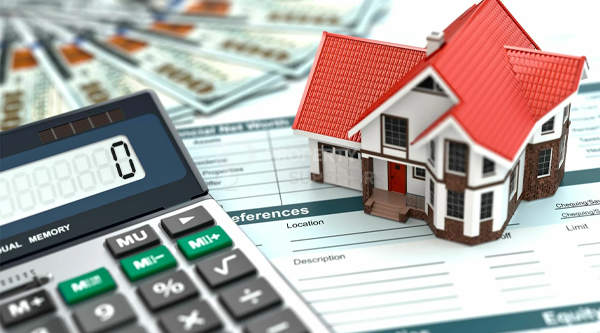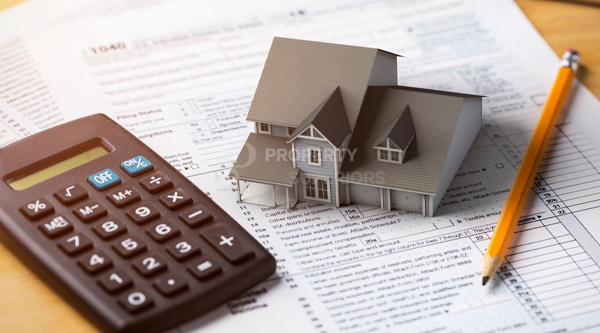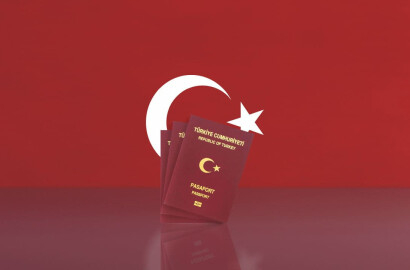
Income tax liability in Turkey depends on residence. If you are considered a resident of Turkey, you are required to pay income tax in Turkey. If you are not a resident of Turkey, you do not pay any taxes in Turkey, except for taxes levied on income generated in Turkey, such as property tax (see below).
Do foreigners need to pay income tax in Turkey?
Again, this depends on the residence status of the foreigner. Therefore, the following rules apply
- If a foreigner is considered a resident of Turkey for tax purposes, he/she must pay taxes in Turkey. Foreigners are considered Turkish residents for tax purposes if they are legally residing in Turkey or reside in Turkey for more than six months in a tax year. This is known as the "six-month rule" for determining tax residency. If foreigners are considered residents of Turkey, they must pay taxes on their income regardless of the source of their income. In other words, foreign nationals residing in Turkey for tax purposes must pay taxes on their gross income.
- If for tax purposes a foreigner is not considered a resident of Turkey, he is only subject to tax in Turkey on income derived from doing business in Turkey or owning real estate in Turkey. This is called restricted taxpayer status. Limited tax liability also applies to residents who stay in Turkey for more than six months only to perform official duties or appointments, such as diplomats, etc. Most Turkish holiday home owners who are not in Turkey fall into this category. This means they are only taxed on rental income and/or investment income from holiday homes in Turkey.

Real estate taxes in Turkey (which everyone pays regardless of residence) are very low compared to other European countries. If you are considering buying a real estate investment in Turkey, you should know how taxes are taxed in Turkey. You should also compare property taxes in Turkey with other foreign real estate markets. Let's take a look at the property tax system in Turkey and some other European countries.
Real estate taxes in Turkey can be divided into three distinct sectors.
- First, there is a tax (stamp duty) to be paid when the property changes hands. Taxes are payable when the title deed is registered. The tax is equal to 4.4% of the "declared amount" of the property and is paid equally by both parties to the transaction. However, we must stress this, stamp duty is often part of the buying negotiation process and sellers tend to pass all responsibility onto the buyer. Therefore, the buyer actually paid 4.4% of the declared value of the property for sale. NOTE: The declared amount of the property does not match the purchase price. Sellers and buyers almost always underestimate the value of their property to mitigate the impact of stamp duty and capital gains tax (where applicable). The Turkish tax authorities are well aware of this and therefore check for "sufficient declaration". The Turkish tax authorities now consider 50-60% of the purchase value to be justified and therefore not challenged. However, if you are buying a property in Turkey and the seller insists on a very low tax rate to be declared (eg less than 30%), you should seek legal advice before agreeing, as unreasonably low declarations may be contested by the Turkish tax authorities.
- Turkey also imposes a property tax every year. This is similar to council tax paid in the UK and US, but for much less money. This tax usually ranges from 0.6% to 1% of the property value. That is to say, if you buy a property in Turkey for 200,000 Euros and the appraised value is around 120,000 Euros, then you will pay a maximum of around 1,000 Euros a year.
- Turkey will also tax real estate income, including income (profits) earned by foreign real estate investors from the sale of real estate and the rental of their properties in Turkey. Tax rates range from 15% to 30%. At the time of writing, Turkey does not abolish income tax if the income is reinvested in other property. Therefore, the real estate income tax payable by both residents and non-residents can be divided into the following two categories:
- Capital gains tax on profits from real estate sales and
- Taxes on property income, such as rental income.

A capital gain is a profit realized when an asset, such as real estate, is sold. The profit is calculated as the difference between the "declared amount" of the property at the time of sale and the "declared amount" of the property at the time of purchase.
As an example - if you buy a holiday home in Turkey for EUR 100,000 in 2020 (the amount shown on the title deed you paid stamp duty at the time was EUR 60,000) and sell it in 2023 for EUR 130,000 (declared sales 80,000 EUR), you realize a profit on the sale of 20,000 EUR as the difference between the declared amounts. This is your capital gain and as a non-resident in Turkey you are taxed on this gain on income earned in Turkey.
So you paid 20,000 euros in tax. Payments range from TL 6,000, below which capital gains are not taxed. The average tax rate is around 23% up to TL 40,000 and can go up to 35% above. So if your only profit in 2023 is $20,000, you'll end up paying about $3,800 after annual tax exemptions and reduced interest rates, an average of about 19%.
For careful tax planning, note that capital gains tax drops to zero (no payment required) after 5 years of ownership. This means that if you have owned property in Turkey for at least 5 years, you do not have to pay capital gains tax at all.
Rental income tax is similar to capital gains tax. The income you earn from your Turkish property becomes a taxable amount after deducting income expenses such as maintenance and some wear and tear. This amount is again subject to annual tax allowances, after which rates start at 15% and increase to 35% on net income exceeding TL 40,000.
How does Turkey's income tax compare to other European countries?
By comparison: Russia is not a landlord-friendly country. Eviction only happens after 6 months of non-payment, and even that is not easy. In addition, Russian tenants can terminate the tenancy agreement, regardless of the duration, with a three-month notice period.
In addition, foreign real estate investors are subject to income tax of up to 30% on all income, with no deductions. If you buy property outside of the big cities, you'll also pay property taxes of up to 1.5% and a slightly lower rate of up to 2.2%.
In Austria, as a non-resident, you pay huge property taxes. You should also be wary of additional taxes on properties you plan to sell in less than 10 years, as capital gains are taxed at the same rate as regular income at 25-30%, but you don't have to deduct anything to hit it.
France has unusual tax laws when it comes to rental income. There are significant differences in the taxes you will have to pay, and it all depends on whether you are renting a furnished or unfurnished property. You may also be penalized if you are considered a "professional" landlord in France.

In Panama, foreign investors have to dodge real estate gains taxes. There is also a property tax that increases based on the current value of the property.
Perhaps the worst place to be a landlord is Italy. Landlords are taxed at 23-43% on rental income, while living costs are taxed on your worldwide income.
But Switzerland doesn't want to be left out when it comes to the list of countries that tax the lives of landowners the most. You will be taxed at 54.5% on the rental income of this Swiss chalet. Ouch.
Some countries have slightly lower property and landlord taxes, but many are not good options due to civil unrest, political issues, or national economic challenges. Greece is a good example. Although current property and income tax rates are lower than those in Turkey, Greece has yet to achieve national financial stability and any solution will likely require the support of property owners and landlords.
You should of course do your homework before investing in foreign property, but property in Turkey should be high on your list due to its low property and income taxes, high property value growth rates and the fewest barriers to foreign property ownership.
Related posts:
The Turkish official gazette published on Tuesday, December 12, a Republican decision issued by the presidency of the Republic of Turkey and Turkish President "Recep Tayyip Erdogan" and bearing the number 32397 regarding making some amendments to the conditions for...
The first day of last September witnessed the implementation of a new law imposing financial fines on real estate owners who impose exorbitant rents on tenants in Turkey, as disputes in recent years between landlords and tenants of real estate...




 New provisions for obtaining Turkish citizenship through real estate ownership
New provisions for obtaining Turkish citizenship through real estate ownership
 Turkish Real Estate Rental Law 2024
Turkish Real Estate Rental Law 2024
 Ways to obtain Turkish citizenship through investment 2024
Ways to obtain Turkish citizenship through investment 2024
 How to choose an ideal apartment in Turkiye?
How to choose an ideal apartment in Turkiye?
 Turkish passport... Extraction method and fees 2024
Turkish passport... Extraction method and fees 2024
